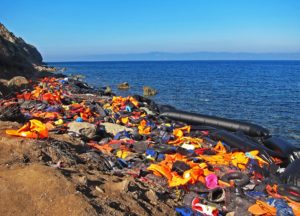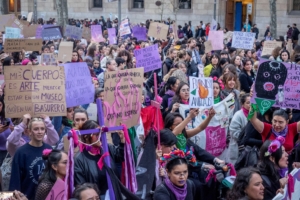La CCAR participa al primer taller del projecte Integra-Train
05/04/2017

Mila Mancheva, analista sènior del Programa Sociològic del CSD, va obrir l’acte presentant el marc de la iniciativa i destacant els seus objectius i activitats. En les següents sessions del taller, els equips de recerca italians i espanyols van esbossar la situació de les persones sol·licitants d’asil i refugiades als seus respectius països. Rosa Añó i Joana Lumbierres de la CCAR van donar una breu ressenya de la recepció de refugiats a Catalunya i van esbossar les diferències entre els sistemes d’acollida i integració a Espanya. Per exemple, els cursos d’idiomes a Espanya es consideren part de la fase de recepció, així com la cobertura de necessitats bàsiques i l’atenció social i psicològica, mentre que durant la fase d’integració els refugiats obtenen permisos de treball temporal, tenen accés a tallers de preparació i formació i signen acords amb empreses.

Durant el segon dia, els representants de les organitzacions gregues i búlgares van presentar els sistemes d’acollida dels seus països, destacant que, contràriament a Espanya i Itàlia, els sistemes dels dos països balcànics estan més o menys fragmentats i que no tenen normes clares i fàcils de seguir ni procediments.

CCAR takes part in the first workshop of the Integra-Train project
On 30th and 31st of March 2017 the Catalan Comission for Refugees (CCAR) took part in the first Workshop of the Integra-Train project along the international initiative implemented in Bulgaria, Greece, Italy, Malta and Spain and hosted by the Center for the Study of Democracy for development and implementation of reception and integration trainings for beneficiaries of international protection. The workshop involved presentation and discussion of the trends in asylum related migration and an overview of the refugee reception and integration systems in the five participating countries. In addition, a discussion was held regarding the methodology for the forthcoming conduct of national mapping studies of the training needs of beneficiaries of international protection to provide basis for development of relevant training modules in the countries in need.
Mila Mancheva, Senior Analyst at the Sociological Programme of the Center for the Study of Democracy, opened the event by presenting the framework of the initiative and stressed on its aims and activities. In the following sessions of the workshop the Italian and the Spanish research teams outlined the situation regarding asylum seekers and refugees in their respective countries. Rosa Añó and Joana Lumbierres from CCAR gave a brief overview of the refugee reception in Catalonia and outlined the differences between the reception and integration systems in Spain. For example, language courses in Spain are considered as part of the reception phase along with basic needs coverage and social and psychological attention, while during the integration phase refugees obtain temporary work permits, have access to pre-training and training workshops and sign agreements with companies.
During the second day, the representatives of the Greek and Bulgarian organizations presented their countries’ reception systems stressing that, opposite to Spain and Italy, the systems of the two Balkan countries are more or less fragmented and that they lack clear and easy to follow rules and procedures.



